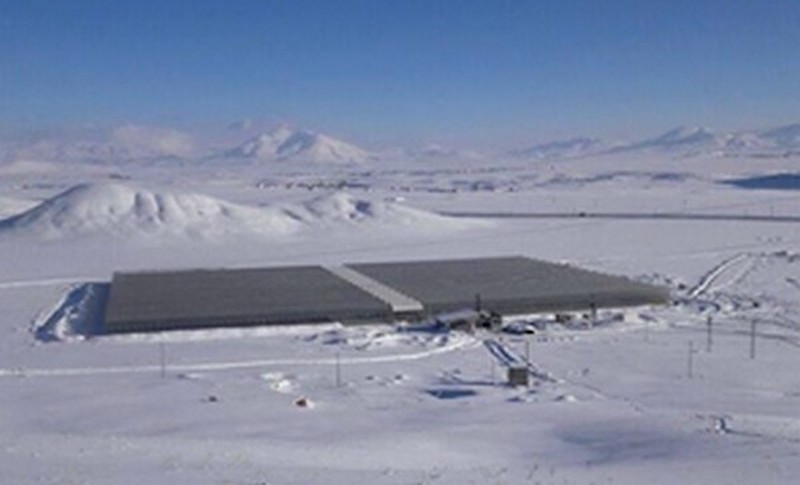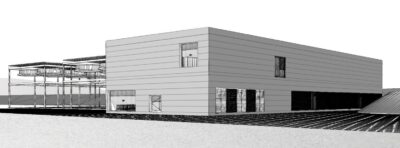Geothermal allowing growth of tomatoes in greenhouses in coldest part of Turkey
In the coldest part of Eastern Turkey, greenhouse operator Caldiran Geothermal is tapping geothermal to produce tomatoes year round in temperatures that can go down to -46 degrees Celsius in winter times.
The high-tech greenhouse owned by Caldiran Geothermal Inc. is located in the coldest part of the eastern region of Turkey – in the Chaldiran – Ayranjilar region in Van. In this region, snow and cold weather reign most of the year. In Turkey, the lowest temperature ever seen was recorded in this region at -46.4 degrees C. The thickness of the snow cover reaches 1.5-2 m. Siberian frosts were observed in this region from December 20 to February 20. A high-tech greenhouse with an area of ??34,000 m2 (including 500 m2 of seedlings) was put into production in 2016. It was built with the support of the Ministry of Agriculture and Forestry. Water is used to heat the greenhouse with an average temperature of 90 degrees C, obtained from 5 geothermal wells.
More than 1,000 tons of tomatoes are produced in this greenhouse and marketed under the brand name Agrovan. In addition to tomatoes, cucumber is also grown here. In total, 40 people work in the greenhouse, including 30 women, which increases the employment in the region. Products are sold both on the local market and exported to Russia and Georgia. Last year, the Agvan brand was awarded the prize as the most prestigious brand in the region.
According to the project coordinator, Yusuf Tashkina, the region is rich in geothermal water resources. This allows you to produce products at any time of the year. On the coldest days, when the outside temperature reaches -36-40 degrees C, the air temperature in the greenhouse does not drop below + 15 degrees C. This region is the coldest region in Turkey, where the minimum air temperature reaches even -46 degrees C. Until recently, Turkey had no experience growing tomatoes in such extreme conditions. Thus, the ability to heat the greenhouse has become an important experience for the greenhouse industry in this country. Tashkin emphasized that they also make the best use of high technology. There is an employment problem in this region. It is not typical for women to participate in work in greenhouses. Many women work in the new farm, which supports their families. According to Esmer Ozbahçeci, who is responsible for the production in the greenhouse, it is especially important for women to implement such a project in a place like Chaldiran. Usually women here do not go out too much. Since there is no work in the district, they always live at home. But on this project, women began to work and earn their own money and very well mastered this place.
The new project attracted a lot of attention. Such a large investment seemed a huge risk and all the project participants were very worried when the air temperature dropped and a lot of snow fell. However, thorough engineering calculations during the design of the greenhouse ensured the successful operation of the greenhouse.
Agronomic consultations are provided by Dr. Murat Chichkeli. According to him, no one believed in the possibility of successful operation of the greenhouse at an altitude of 2050 m with an outdoor temperature of -46 degrees C, since the temperature difference (delta T, ?T) in this case reaches 50-60 degrees C (+ 15 degrees C and -46 degrees C). However, at the moment, tomatoes are grown here (hand, cherry and cocktail), as well as cucumbers. Now the greenhouse has been working for the fourth year. Providing the necessary parameters of greenhouse air in such conditions is a real success. Mehmet Emin Beyish, a member of the company’s board, emphasizes that they use bumblebees for pollination of plants, which allows them to grow tomatoes without the use of phyto-hormonal agents. Thanks to the use of biomethods, the use of pesticides has significantly decreased. Products enter the local market, where demand is very high.
It is also exported to Russia and England under the brand name Aganov. The products have GlobalGAP and ITU certificates of safety and quality.
Source: Greentalk.ru


















